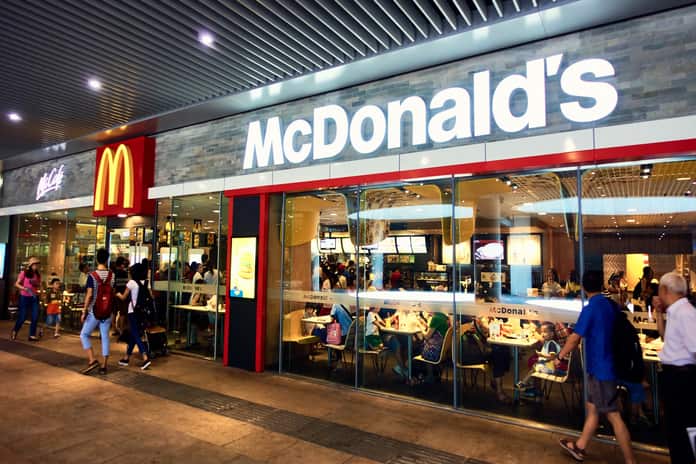Approximately six months after Russia’s invasion of the country prompted McDonald’s Corp. (NYSE:MCD) to suspend its operations there, the fast-food brand will reopen some of its locations in Ukraine.
“We have decided to institute a phased plan to reopen some restaurants in Kyiv and western Ukraine, where other businesses have safely reopened,” Paul Pomroy, McDonald’s corporate senior vice president for international operated markets, said in an email message to employees of the company.
Over the next few months, according to Mr. Pomroy, McDonald’s will be working on getting the locations ready for reopening by making necessary preparations. He did not specify a particular date or comment on the number of the over one hundred outlets that the company owns and operates in Ukraine that will reopen there.
According to Mr. Pomroy, officials in Ukraine have stated that it is in the best interest of the Ukrainian people and the economy for firms to resume operations in the nation.
As the months have passed since the beginning of the invasion, the front lines of the fight have been pushed farther afield, allowing life in the capital city of Kyiv to return to some semblance of normalcy. The Donbas region in eastern Ukraine has been the primary focus of military activity throughout the conflict. Kherson, located in the southern area of Ukraine, is the only regional capital in Ukraine that Russia has taken control of since Russian President Vladimir Putin gave the order for the invasion to take place.
The Shut Down of Restaurants in Ukraine Negatively Impacted McDonald’s Bottom Line
After Russia began its invasion in February, foreign businesses immediately started making preparations for the worst, including closing their offices and factories and halting production while the rail network and ports were shut down. The Ukrainian headquarters of McDonald’s, as well as all of the restaurants in that country that it owned and operated, were shut down. More than 10,000 individuals are employed by McDonald’s in Ukraine. The company has stated that they have continued to pay those workers despite the suspension of business operations there.
The international fast-food giant shut down all of its more than 800 outlets in Russia in March, a move that negatively impacted the company’s bottom line. Amid the conflict, many businesses, including McDonald’s, ceased their operations in Russia. After some time, it decided to sell its operation there.
Because McDonald’s owns a significant number of restaurants in Russia and Ukraine, operations in those countries contributed around 9% of the company’s revenue in the prior fiscal year.
McDonald’s And McCain Foods Partner to Launch the $1M Future of Potato Farming Fund
McDonald’s Canada and McCain Foods Limited have partnered to develop the Future of Potato Farming Fund by investing $1 million in education, demonstration, and cost-sharing awards to encourage potato farmers to adopt regenerative methods and technologies. The new Fund aims to improve soil health and farm resilience as Canadian potato growers face growing climate change impacts on productivity and crop quality.
Canadian farmers are experiencing abrupt storms, drought, unseasonable precipitation, early frosts, chilly springs, and blistering heat waves. This threatens food security and crop quality in Canada. The McDonald’s McCain Future of Potato Farming Fund aims to protect Canada’s farming economy by promoting regenerative farming practices that promote soil health and farm resilience.
McCain Foods’ global Regenerative Agriculture Framework defines a regenerative potato acre. This global, voluntary framework will help growers transition to regenerative agriculture.
McDonald’s Canada invests in and works with partners and suppliers who share its values to build a thriving food system. Food quality and sourcing are ways the company is living its purpose to nourish and develop communities.
More than 130 Canadian farmers representing 76,000 acres of potato farming can apply. Starting in August 2022, producers will receive funds to apply regulatory practices to increase soil health and resilience. Growers can use cost-sharing for regenerative techniques and technology like cover crop seed, flower strip seed, lower intensity tillage equipment, decision support systems, organic soil supplements, and more.
A group made up of McDonald’s Canada, McCain Foods, The Soil Health Institute, and a potato farmer will decide on funding. McDonald’s Canada and McCain Foods will partner with the Soil Health Institute to measure programme progress, including enhanced soil organic carbon and total nitrogen, bulk density, aggregate stability, plant accessible water, and drainage capacity.
Featured Image: Megapixl © Alakoo















